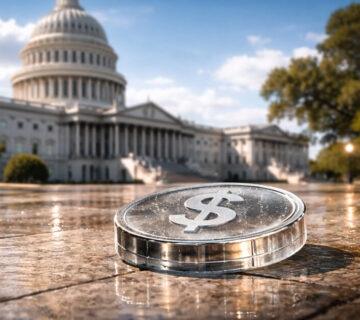North Carolina lawmakers have introduced a bill allowing the state treasurer to invest up to 10% in Bitcoin (BTC) and other qualifying digital assets.
House Bill 92, sponsored by Representative Destin Hall and Representatives Mark Brody and Steve Ross, qualifies any crypto with a market cap of over $750 billion during the 12 months preceding the potential investment as a qualifying digital asset.
Notably, only Bitcoin fits comfortably this requirement, as the threshold is over 2x higher than Ethereum’s (ETH) current $323 million market cap.
Additionally, the investment must happen through a regulated exchange-traded product (ETP).
Under the bill, North Carolina’s State Treasurer can invest in crypto through the General Fund, Highway Fund, and the 24 special funds under its supervision.
The Governor and Council of State will oversee the implementation of digital asset investments, and third-party investment managers handling digital assets must have at least $100 million in assets under management.
20 US states
North Carolina is the 20th US state to introduce Bitcoin reserve legislation. Last week, lawmakers in Montana and Florida introduced bills to establish Bitcoin reserves, adding to the growing number of US states integrating digital assets into their financial strategies.
Montana’s House Bill 429 proposes a special revenue account for investments in precious metals, stablecoins, and digital assets, requiring a minimum market capitalization of $750 billion.
The bill also mandates that these assets be held by a qualified custodian or via an exchange-traded fund (ETF). Up to $50 million from the state’s general fund can be allocated to this investment.
In Florida, a similar bill seeks to authorize the state’s Chief Financial Officer (CFO) to invest in Bitcoin, allocating up to 10% of public funds to the asset. The legislation positions Bitcoin as a hedge against inflation, citing its historical appreciation and increasing acceptance among sovereign nations and investment firms.
It also includes provisions for state agencies to accept Bitcoin payments while requiring conversion into US dollars for general revenue fund contributions.
Go to Source to See Full Article
Author: Gino Matos








